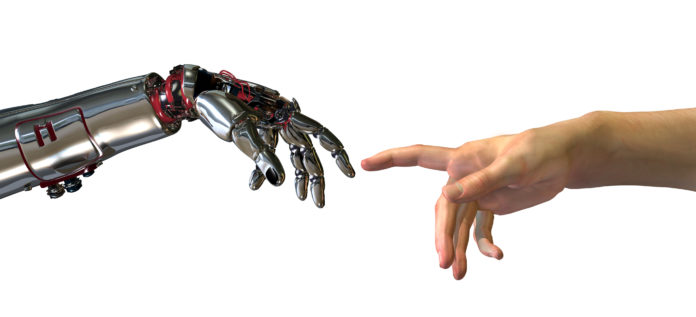
As we continue to witness the dominance of robots in both commercial and home environments, you can’t help yourself but think of the movie line in the Terminator movie, “I’ll be back!” Well, they are back and this time for good with thankfully no distinctive agenda on their robotized human menu. Moreover, they are not discriminatory in their applications in the business sector, as they adapt to any size of business already in play. If your mind is in the coffee business, you do not have to restrict yourself to only growing the Arabica and Robusta types of coffee. You can get yourself a robotic arm coffee maker and learn to brew your home-grown coffee too. If you think the robotic arm coffee maker is a cool idea, you should read about it here. The article seeks to find out what the robotic uprise has in store for small businesses.
Automation technologies are no longer foreigners in the human workplace. Its outcome for both the employee and the employer is on an unimaginable scale. If you thought that automation was too cold for a small business workplace or maybe the small business had a generic immunity to automation, then you have your thoughts misplaced on the wrong universe. We are going to have a small business response session from such owners.
The Change Robots Bring to a Workplace
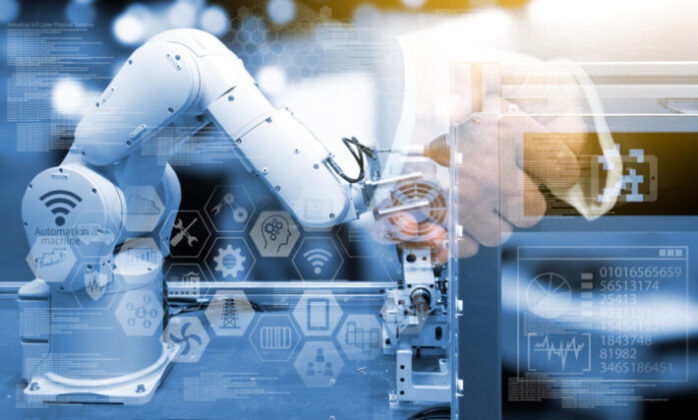
Automation technology is a merge between artificial technology software and actual robotic devices. This definition means that in the not-so-distant future, the human workforce will no longer have to persevere through burdening workloads as this segment will be bringing smartness and intelligence to the workplace. It is no longer a prediction but an expectation that the onset of the 2030 calendar will come with 38% of the job allocations under the US economy going towards the robots. PwC is confident in this research data.
The large enterprises are the ones that seem unable to contain their excitement about the robotic buzz already in play. An investment in automated workforces will enable large companies to improve operational predictability, manage labor costs, and have a boost in productivity.
However, the large corporations need to calm their excitement down as they will have to share the goosebumps. The touch of automation will leave an undoubted wave of change across all industries, either directly or indirectly. Industries tied with commonalities to the small business communities will feel the near-term impact of automation. The most obvious ones are retail, manufacturing, storage, and transportation industries.
Thus automation is playing favorites with small businesses. The small business owners are, however, playing a game of cat and mouse, not knowing that the cat chasing them is offering free cheese. They seem to be unaware of the technological benefits automation seeks to bring to their businesses.
A Workplace Automation Handbook for Every Small Business Owner

Through leaps and bounds is the only way to describe the steps automation is taking to light up the small businesses. The advancement in artificial intelligence technology is so rapid that the machines are at the phase of learning through observation. The forward-thinking enterprises following up on the technological ecosystem are aware of this present mileage.
A fact that does not require any statistical backup is that small businesses tend to lag when it comes to adopting new technology. Despite this revelation, sophisticated automation and AI solution are yet to reach their prime as it would take some more years of input and technological upgrades and mileages to embrace this certainty. Hence whether the small businesses workplace is ready or not, the robotic and automation technologies are this time showing up without a warrant. Thus if you are thinking of being a small business owner, you should consider the following brief about automation technologies and what it means for your company.
1. You can automate some jobs much more comfortable than others
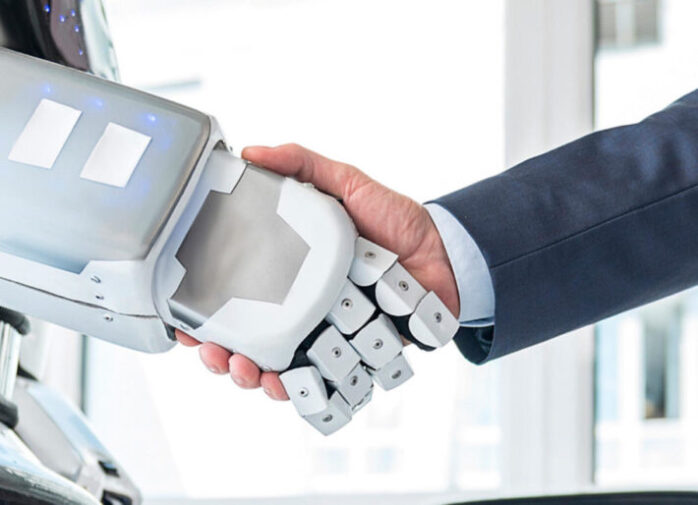
Robotic technology might have an undisputed presence in a work environment, but some jobs will remain suited for humans. However, in the field of artificial intelligence, it is a wide belief that next-generation technologies will be an augment and enhancement to the human employees’ work environment. They will provide insights on matters that might pose a challenge to the intellectual levels of human beings.
AI will, however, have to step aside when dealing with jobs and tasks that require a unique perspective or creativity. Such tasks are a challenge for automation, which is suited for repetitive and easily defined tasks. An example is the physical predictability of warehouses, which makes it a perfect environment for robotic automation due to the many repetitive tasks available.
2. Small businesses automation technologies are now affordable
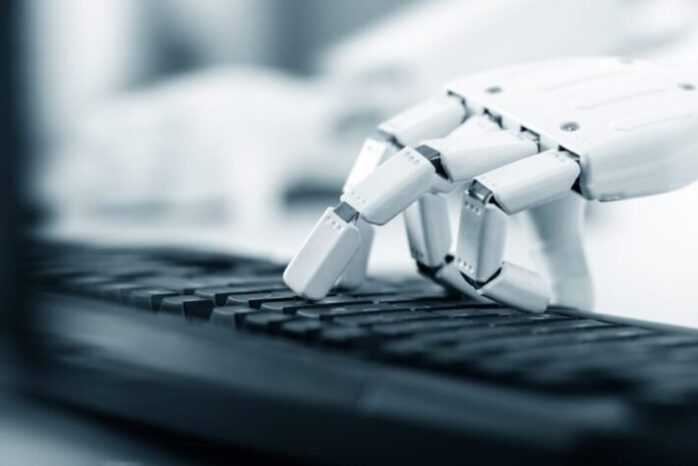
The misconception of robotic technology being unaffordable is keeping many small businesses from embracing technological growth. Implementing comprehensive robotic technologies is undoubtedly expensive. However, smaller robotic technologies have a reasonable price tag. Thus any serious small business owner can secure the same.
For a reasonable budget of $25,000, small operations under the manufacturing sector can be up and running with implemented industrial robots. It is even more exciting that the near future seeks to reduce the cost of advanced robotics so that small businesses can also easily taste the aura of sophisticated automation.
Automation is also populating the retail and services sectors through self-service technology. The readily deployed POS systems merged with a touch screen interface are increasing the commonality of customer self-service. It is through the effectiveness of payment methods like Smartphone-powered digital wallets and the use of credit cards. Such self-serve kiosks make it possible for customers to access their information and transaction details easily.
3. The implementation of automation technology is a complicated process
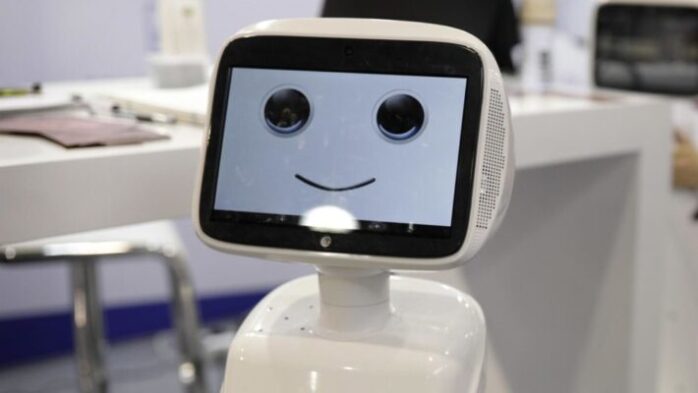
Your small business workplace might fit the criterion of needing the introduction of robots or automation, but cost and work activity demands fall under the essential variables required. One aspect to consider in your perfect equation of robotic implementation is regulatory concerns. Several industries are making use of automated software to cope with compliance. However, the usability of robots in many industries raises an eyebrow of dire legal concerns. An example is the healthcare sector, where many patients do not oppose the use of automation technology. However, it is the lack of appropriated legal and regulatory frameworks in place that is keeping such an industry from fully embracing automation technology.
The necessity of human touch in the work environment is another factor that needs consideration. The automated technology solutions are convincing many companies to replace customer service representatives and receptionists. Thus if the small business in question seeks to strengthen the customer-business bond, doing away with the customer representatives and receptionists might be counter-productive.
Are You Ready to Robotize Your Business?

It will take a few years before the robotic technologies stop receiving some weird glances from the humans in the work environment. Therefore, if your business has the potential of scaling up, it is not too soon to begin some automation mentorship. The first step is to determine the roles and activities that will progress under automation technology. The technology does not have to be a replacement for the human workers as they can assist the humans in meeting their goals and targets faster and in a precise manner. It would help if you had insights on the applicability and techniques of automating your work environment. The next several years should have you equipped with an executable budget plan and ready to automate your business. If this is something that your business is working towards, visit https://www.helpsystems.com/product-lines/automate.
Automation does not just bring operational efficiency to the table. The business-for-sale marketplace is also a place to command high prices for the futuristic small business owners. Thus automating in the present is an opportunity for better business outcomes soon. Therefore even your decision to later exit the company will leave you followed by unimaginable profits. In short, automate to liberate.











